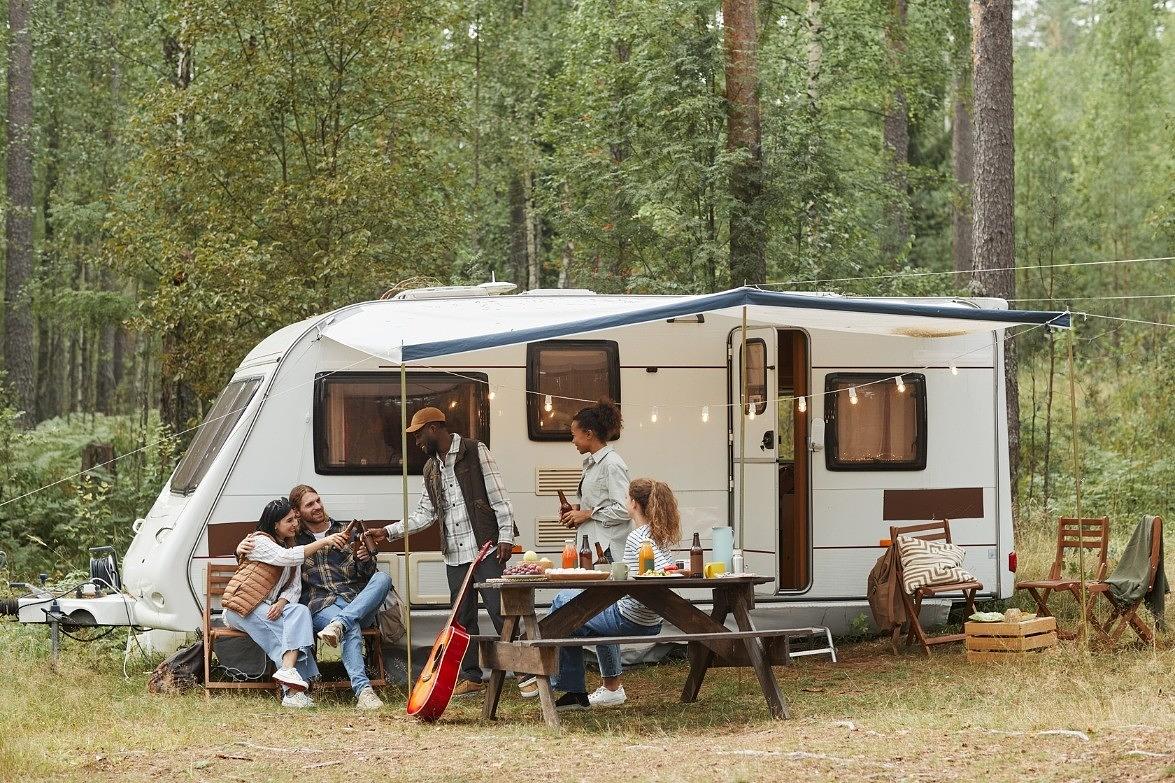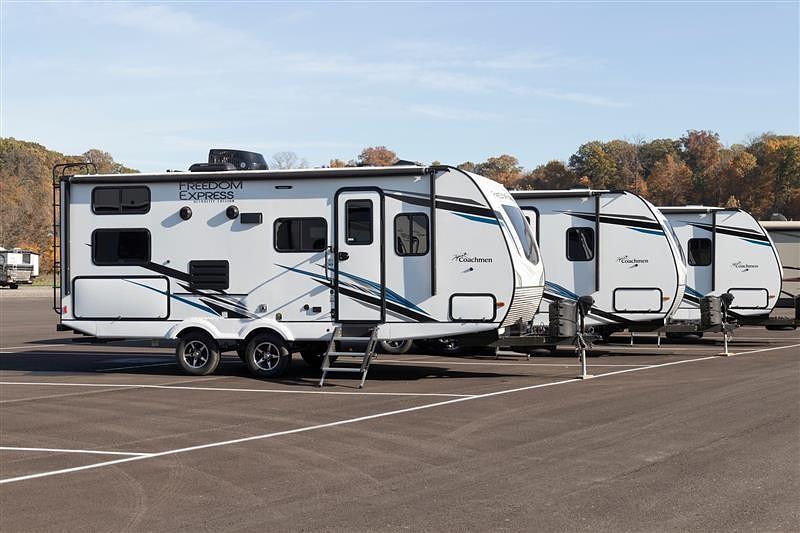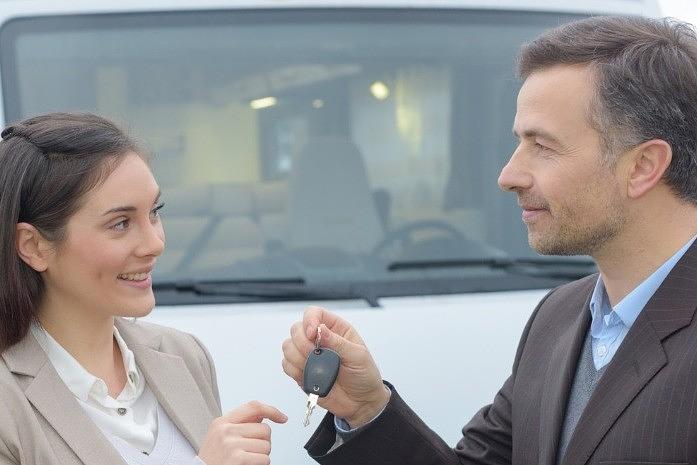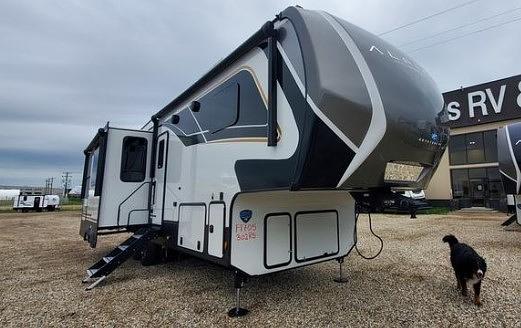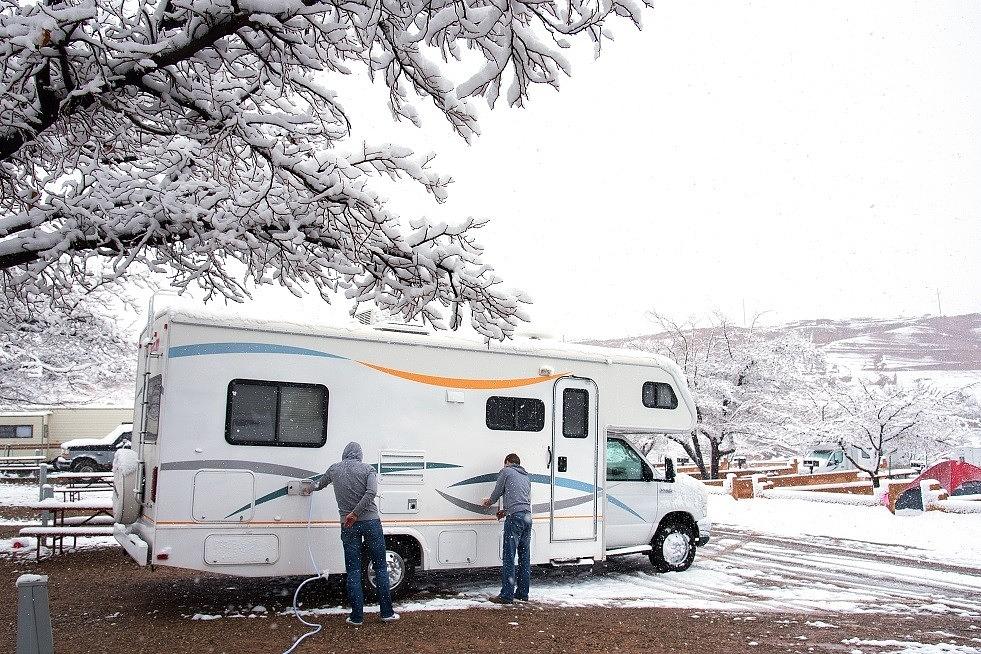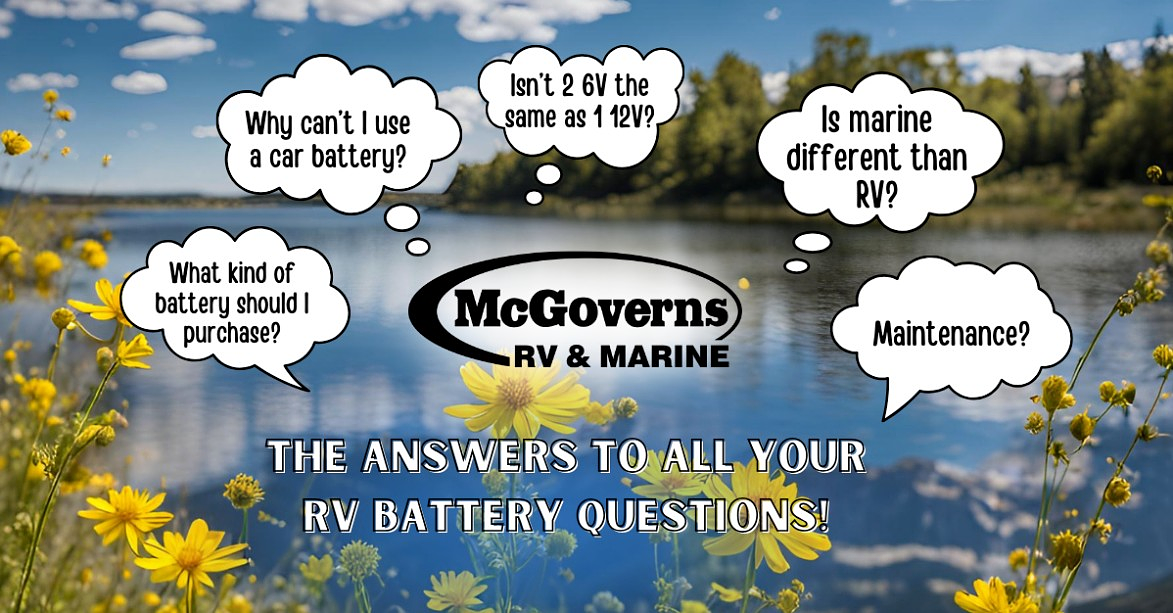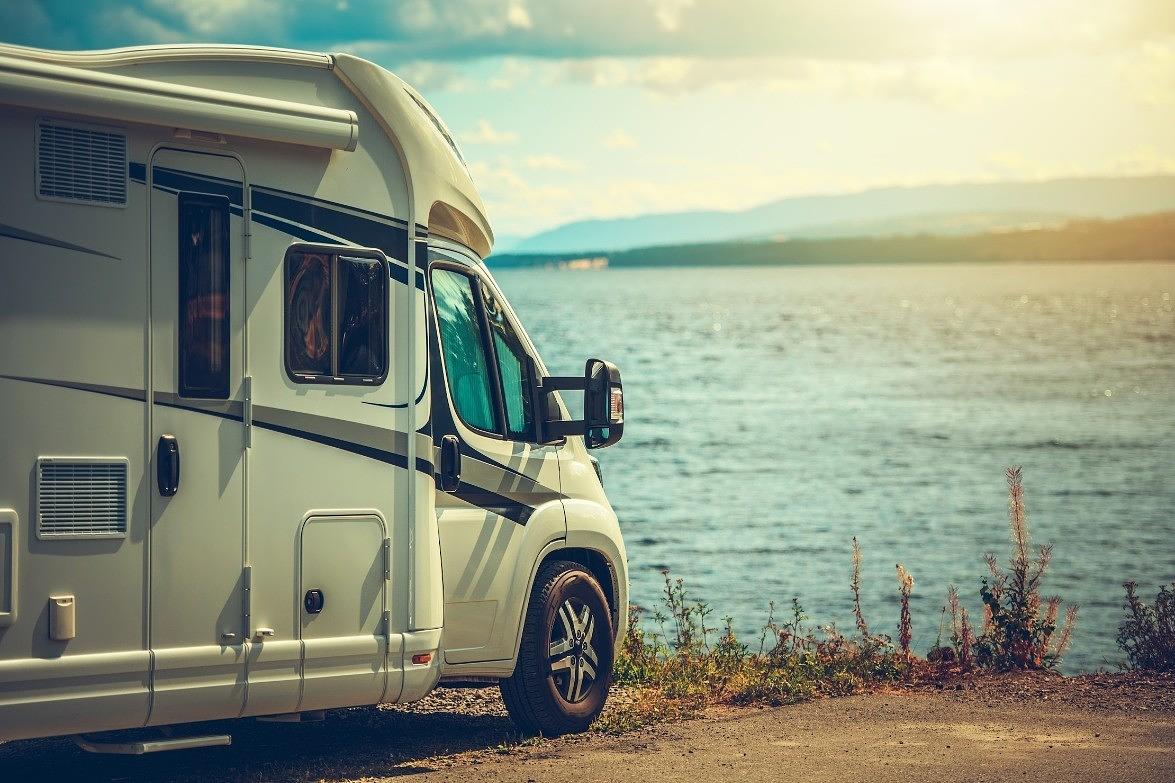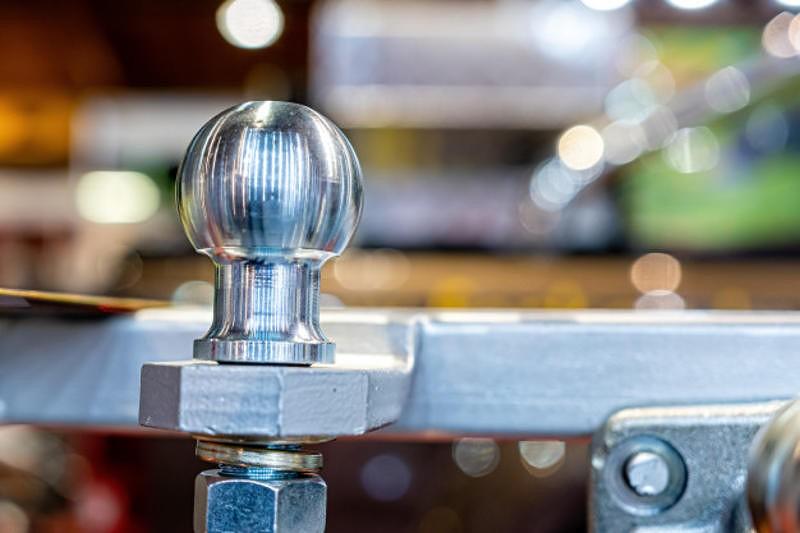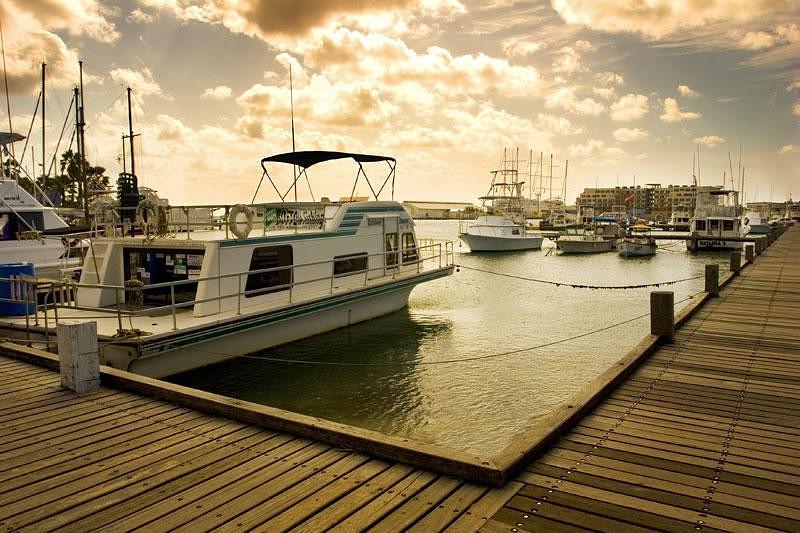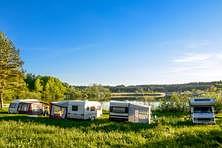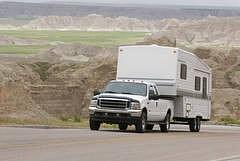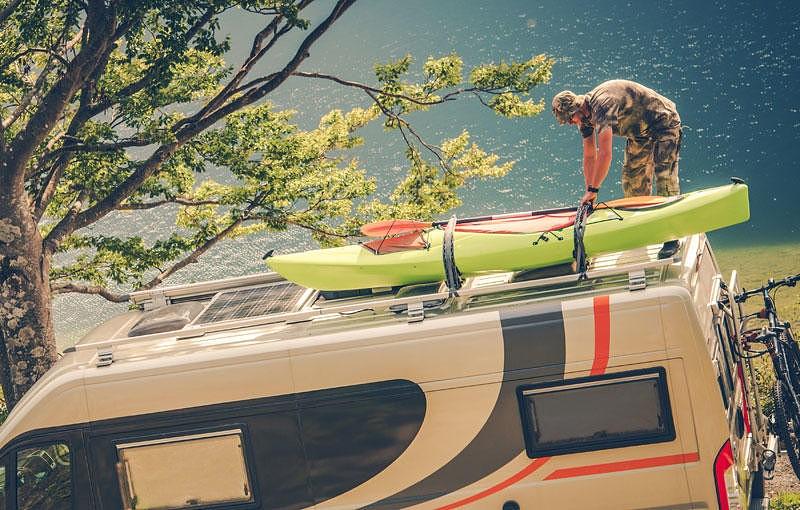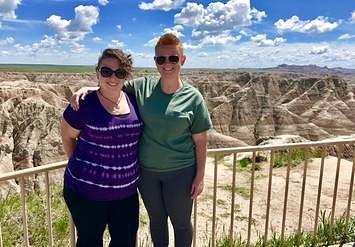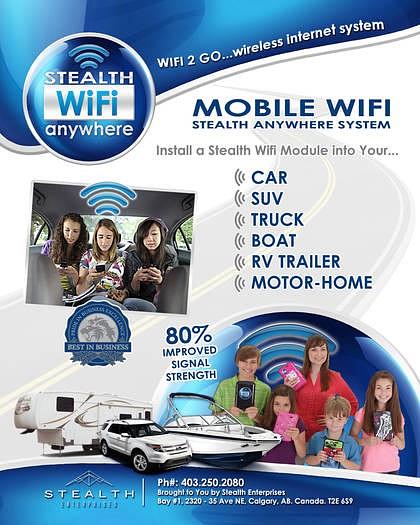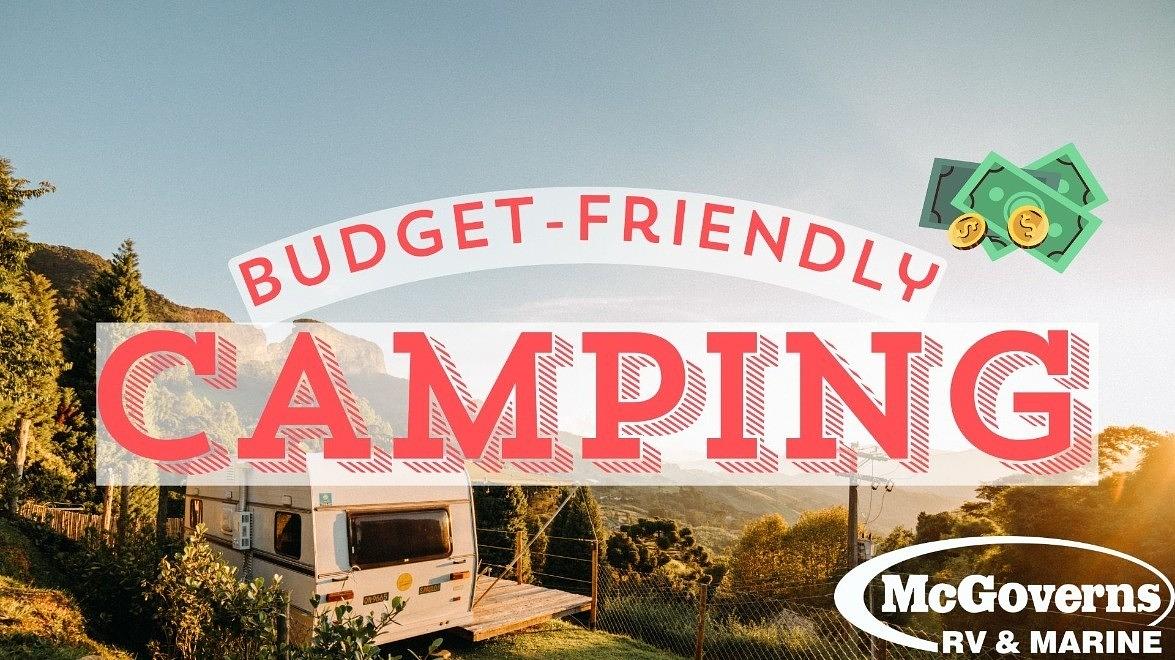
Budget-Friendly Camping!
While we may love glamping here at McGovern’s RV – including luxury fifth wheels, heated camping chairs, custom décor and every customizable option for your RV, but camping is f...
While we may love glamping here at McGovern’s RV – including luxury fifth wheels, heated camping chairs, custom décor and every customizable option for your RV, but camping is f...
First and foremost – WELCOME! Camping is a great way to disconnect from the hustle and bustle of the everyday, and allows you to enjoy all of the incredible things offered in na...
Camping with your travel trailer opens the door to adventure and comfort, enabling explorers to bring the conveniences of home on the road. However, even seasoned adventurers ca...
Camping is the perfect escape from all your worries, and it’s time for you to get away! Not sure where to go? Here’s a few of our fan-favorites north of Edmonton that you might ...
Every year we battle some pesky critters who try to bunk in your RV. Pulling into the campground you find there are more rodents than ever before! Mice can cause a lot of damage...
When purchasing a new RV, one of the most important factors to consider is the warranty that comes with it. RV warranties can vary greatly from manufacturer to manufacturer, so ...
One of the best ways to enhance your RV experience is with solar power. Solar can help keep your RV batteries charged for longer to keep you out in nature for longer. Depending ...
Embarking on an RV journey with your family can lead to unforgettable memories and adventures. It’s a perfect way to explore new destinations while enjoying all the comforts of ...
RV ownership offers a unique lifestyle filled with adventure and flexibility. However, financing a new RV requires careful planning and understanding key aspects. At McGovern's ...
Making an RV your full-time home allows for endless exploration. You aren't tied down to a specific location, opening up a world of travel possibilities. Say goodbye to hefty ho...
When planning your next great adventure in a fifth wheel, one of the most important aspects to consider is tow vehicle requirements. Ensuring your vehicle is equipped and ready ...
Importance of Understanding Your RV Warranty
A warranty serves as a guarantee from the manufacturer, promising to repair or replace defective parts within a specified period. I...
There are a multitude of ways to void your warranty, and here at McGovern’s we want to make sure you don’t fall into any of these traps! While McGovern’s RV stands behind our pr...
Choosing a fifth wheel hitch for your camper or truck involves several critical considerations, and a useful buying guide can make this task much more manageable. Here at McGove...
Maintenance of your recreational vehicle (RV) is critical, especially for the harsh cold weather conditions. The process of getting your RV ready for winter is called winterizat...
Boats are great for expanding your horizons and increasing your outdoor recreational opportunities, but they don’t come cheap. Buying a used boat can be a smart choice for those...
When it comes to RV safety, following best practices is essential to ensure a safe and enjoyable trip. Doing your part to ensure that you’re using your RV responsibly will help ...
Camping with kids can be quite a handful, especially once they start bringing their friends and filling up all the sleeping spots in your bunkhouse. Camping is a great way to re...
There's all kinds of things to learn when you step into the world of RV! Whether you're a first-time RV buyer looking for some guidance or you've been camping for years and are ...
Spending a lot of time off the grid requires having all the necessary amenities that can offer you and your family some comfort. Luckily, most RVs are compatible with a number o...
When you’re on a camping trip, the last thing you want to do is cook a complicated dinner in your cramped RV kitchen, especially over the hot summer months. It gets muggy enough...
Motorhomes are broken down into different subgroups, also known as classes. The various categories are designed for different types of travel. The right motorhome class for you ...
RVs bring the comforts of home everywhere you go, but that comes at a price. The waste water from your sinks and shower end up in the gray water tank, which you’ll have to clean...
Host A Party
If your boat is big enough—or if the group is small enough—it can be a great place to host a themed party or two.
Picnics
A checkered blanket in a shady part of ...
Whether you’ve checked the weather forecast or not, it’s known for being unpredictable. Even the most careful boaters can get caught in rough waters, so you need to be prepared....
There’s nothing like a family boating trip to bond and enjoy a beautiful day, but—as you know—kids don’t always stick to safe activities, and they get bored quickly. We here at ...
Unless you live right on the water or have a permanent spot at your favorite marina, chances are you need to tow your boat to and from the water. Towing your boat safely takes s...
Getting away from it all on a relaxing vacation or camping trip can make a world of difference, and there’s no better way to do it than with your own travel trailer. But these t...
Travel trailers are some of the most versatile and maneuverable campers, making them great for a range of camping and road trip styles. But hitching it up to your tow vehicle, w...
Travel trailers are the perfect way to elevate a campsite into a luxury suite, but only if they’re level. Any odd angles can be more than uncomfortable—they can be downright uns...
With warm weather on the way, it’s time to consider buying a boat or upgrading to a better one! Time on the water is the best way to celebrate the thaw, but how do you know whic...
There’s no better way to elevate your next camping experience than with your very own RV, but they can be a big investment. It’s important to get the right one, and that’s hard ...
RV owners have a lot on their plates in terms of maintenance and upkeep. There’s always some little problem that needs to be addressed. If you’re here because your windows are s...
With spring finally here, it’s time to get back on the water in your fishing boat. If you’re a new angler, you may not know how to prepare your tackle box for a successful trip....
The Toilet
Alright, we have to start with the main appliance in your camper’s bathroom: the toilet. Your RV’s toilet will require a little bit more maintenance than your toilet...
Camping is a time-honored way to get away from it all and connect with nature, and it’s always more comfortable in a travel trailer. These towable RVs have an incredible variety...
Your RV makes camping trips, road trips, and any vacation into a luxury stay in a hotel suite with every comfort of home! But if you want it to keep up with you, you’ll have to ...
While you may hope that you can just park your travel trailer at your campsite and start your vacation as soon as you arrive, the truth is that there is some set-up involved. Ta...
Choosing a recreational vehicle is a challenging process, what with the vast amount of options available to you on the market. If you’re interested in a towable RV and you want ...
Camping is never as comfortable or luxurious as it is when done with a motorhome, but deciding what type of motorhome you need can be exhausting. Do you want a big diesel-powere...
If you're going to live the RV lifestyle and want the option to go off grid, you want to own an RV-Ready inverter generator. We recommend Bear Cat's IG3500E Inverter.
The new I...
But for winter living, they also happen to be highly functional and comfortable. The Four Seasons Living Package that comes with all of our regular Montana models here at McGove...
So you are thinking about purchasing an RV... Whether its your first buy, or you're downsizing, or you're growing your family and will need something larger, it can be overwhelm...
1. Teach them a new skill
Whether it’s a lesson on why leveling is so important, how to build the perfect campfire for marshmallow roasting, or basic wilderness survival skills...
@Wander.Free.and.Queer
We are Danella and Allie, a queer couple in our mid-thirties who travel full-time in our RV with our two dogs. We are new to the full-time RV lifestyle a...
Okay, let's just be real here for a second: it is 2018. We are the past the point of denying that we are always on our phones, our tablets, our computers... right?! Right. And w...

